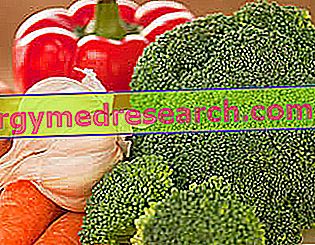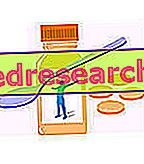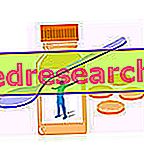Generality
Helicobacter pylori is a pathogenic bacterium that finds its ideal habitat in the mucus that covers the inner walls of the human stomach. It is estimated that the infection affects more than 50% of the world population, even if only in some cases it turns out to be symptomatic; as an indication, around 10-20% of affected individuals will develop forms of gastritis and peptic ulcers associated with the infection.

Currently, the reference therapy for eradicating Helicobacter pylori infection is based on the joint use, for one or two weeks, of two or more antibiotics (such as amoxicillin and clarithromycin) and of a drug capable of reducing gastric acidity (proton pump inhibitors, such as lansoprazole and omeprazole), according to different therapeutic schemes.
Although effective, this therapy has some negative implications, such as the favoring effect on the development of antibiotic resistance (already problematic today), the cost of therapy and the side effects related to the individual active ingredients.
While waiting for an effective vaccine, different natural approaches have been studied, based on the use of herbal extracts, probiotics and nutraceuticals.
Even if a natural course of treatment hardly guarantees complete eradication of the pathogen, it can still help to keep it under control, avoiding the development of complications.
Plants, Foods and Spices
Some plants are able to produce antibacterial substances, also active against Helicobacter pylori . Unfortunately, despite the powerful antibiotic activities recorded in in vitro studies, very often these natural remedies prove to be scarcely effective in fighting the bacteria when they are administered to human volunteers. This is the case for example of garlic, whose antibiotic activity against Helicobacter pylori, highlighted by many in vitro studies, has been denied in vivo by several clinical studies.
If the utility of the garlic seems rather poor, that of the broccoli takes advantage of some timid scientific confirmations, both in vivo and on animal models. It seems that the consumption of broccoli reduces the infection, without being able to defeat it; in addition to a direct bacteriostatic mechanism, a protective effect of the vegetable on the gastric mucosa is also hypothesized. The antibacterial activity is due to isothiocyanates, in particular to sulforaphane, already extensively studied for its potential usefulness in oncology.
Even the catechins of green tea have shown important bacteriostatic and bactericidal activities against Helicobacter pylori, both in vivo and in vitro. In this sense, Epigallocatechin gallate appears to be the most active substance.
In addition to those of green tea, other polyphenols, such as red wine resveratrol, have been studied for their potential usefulness in treating the infection; more generally, studies indicate that foods rich in polyphenols (tea, black grapes, wild berries, extra-dark chocolate, etc.) can help to keep the infection under control and limit some symptoms related to it.
Encouraging results were also collected by studying the anti-helicobacter effects of licorice extracts with a high flavonoid content on animal models, although clinical trials are undoubtedly necessary to assess the true extent of these effects in humans.
The products of the beehive, including honey and propolis, are known to the general public for their antibacterial activities, also studied for Helicobacter pylori. The results obtained so far seem to attribute to these products a rather modest efficacy, even if their regular use could help to keep the infection under control.
Probiotics
Numerous studies have been conducted to evaluate the usefulness of probiotics, both as a support to traditional pharmacological treatment and as an alternative treatment.
Several strains belonging to the genera Bifidobacterium and Lactobacillus, commonly included in supplements and fermented foods, exhibit a certain anti-Helicobacter activity, acting substantially as antagonists for bacterium replication (by secretion of bacteriocins, reduction of adhesion capacity, etc.). ).
In vivo studies seem to confirm this utility, with several clinical studies that indicate positive results in terms of reduction of bacterial colonization and improvement of gastritis associated with infection. Treatment with probiotics would also seem useful in a preventive way, to reduce the risk of complications, and as a support to the classic drug therapy, to reduce the side effects associated with antibiotics.
Algae
The usefulness of algae in the treatment of Helicobacter pylori infections derives from their high polysaccharide content; these nutrients reduce the adhesion capacity of Helicobacter pylori to the gastric walls, mediated by the interaction with specific lipids and carbohydrates of the cell membrane of epithelial cells.
The anti-adhesive action of algae such as Spirulina and Chlorella has been demonstrated in in vitro and in vivo studies; this action can be useful both as a preventive and as secondary prophylaxis (to reduce the possibility of re-infection after drug treatment)
Warnings and Recommendations
The use of natural remedies for the treatment of helicobacter pylori infections, given the very low probability of obtaining complete eradication, must be previously agreed with your doctor; if some of these remedies can have a certain utility in less severe cases, in the presence of severe symptoms or complications, it is strongly advised against spontaneously abandoning the traditional pharmacological treatment to undertake a course of natural cure.



